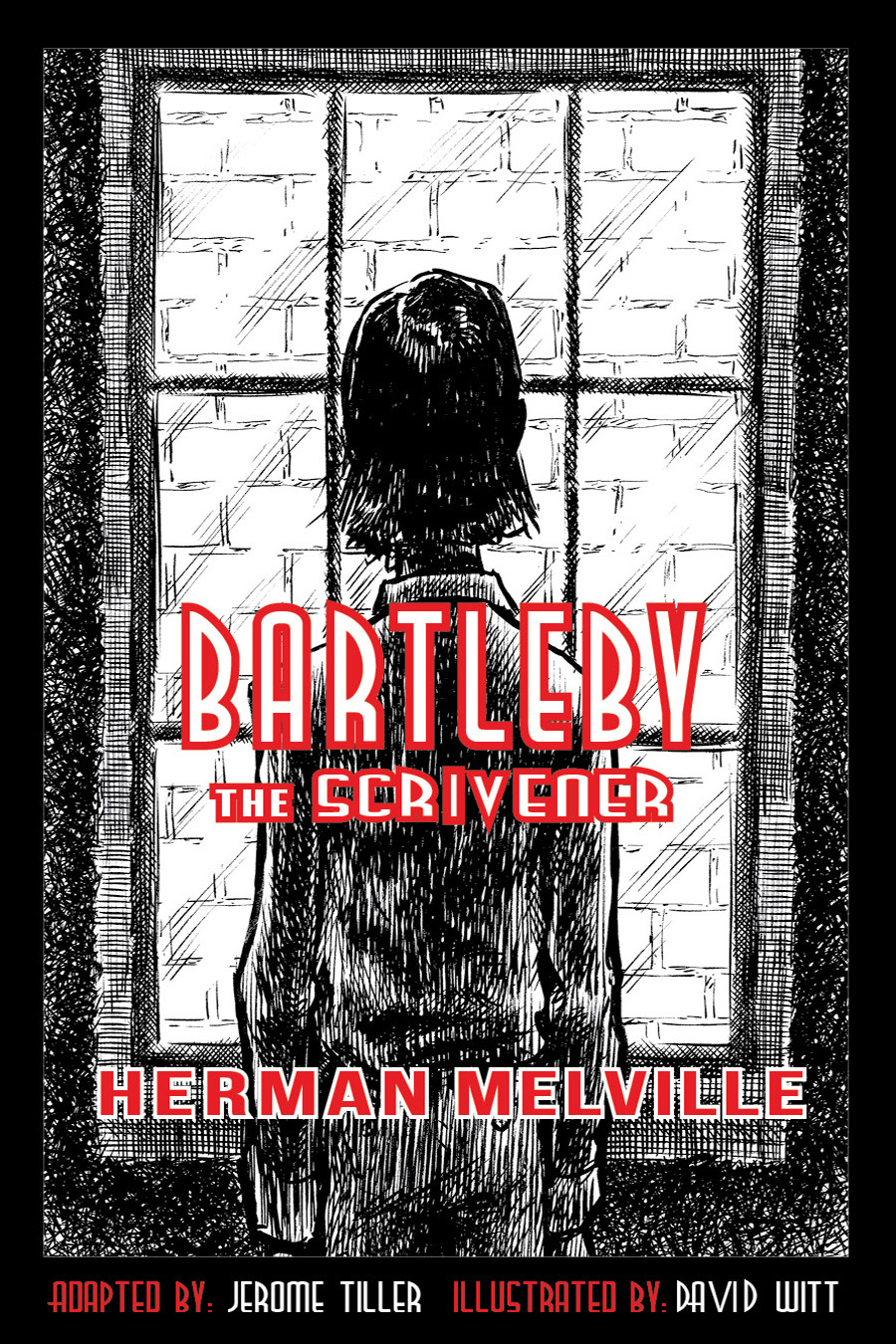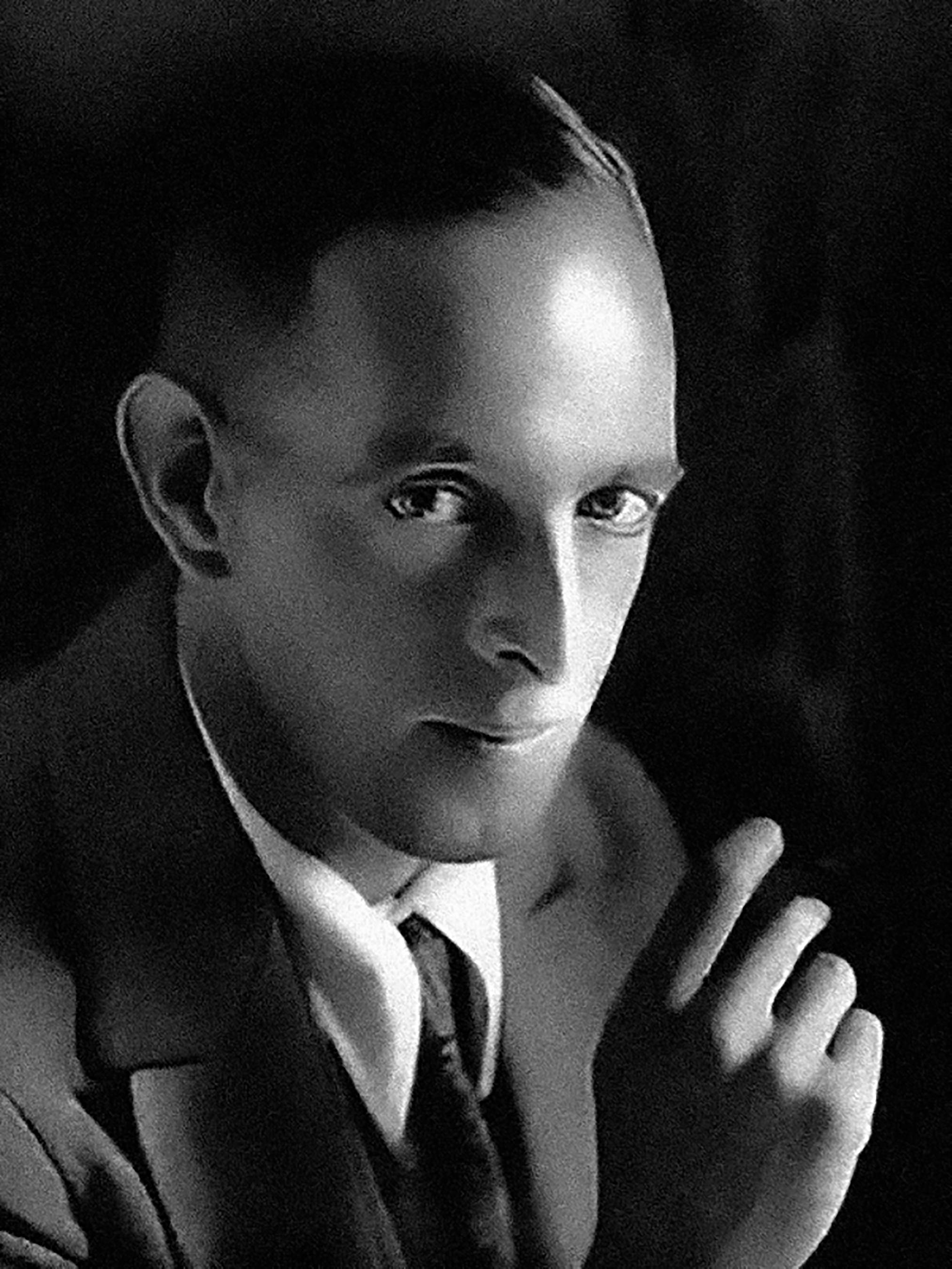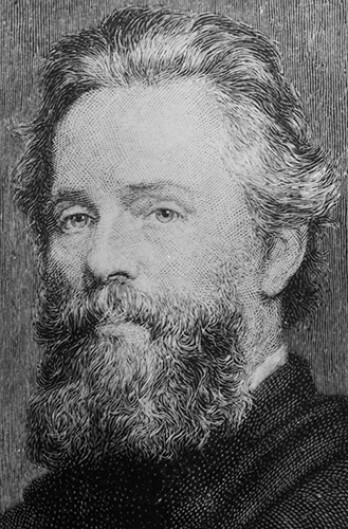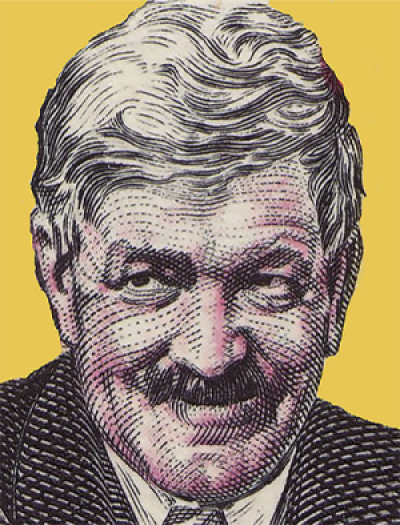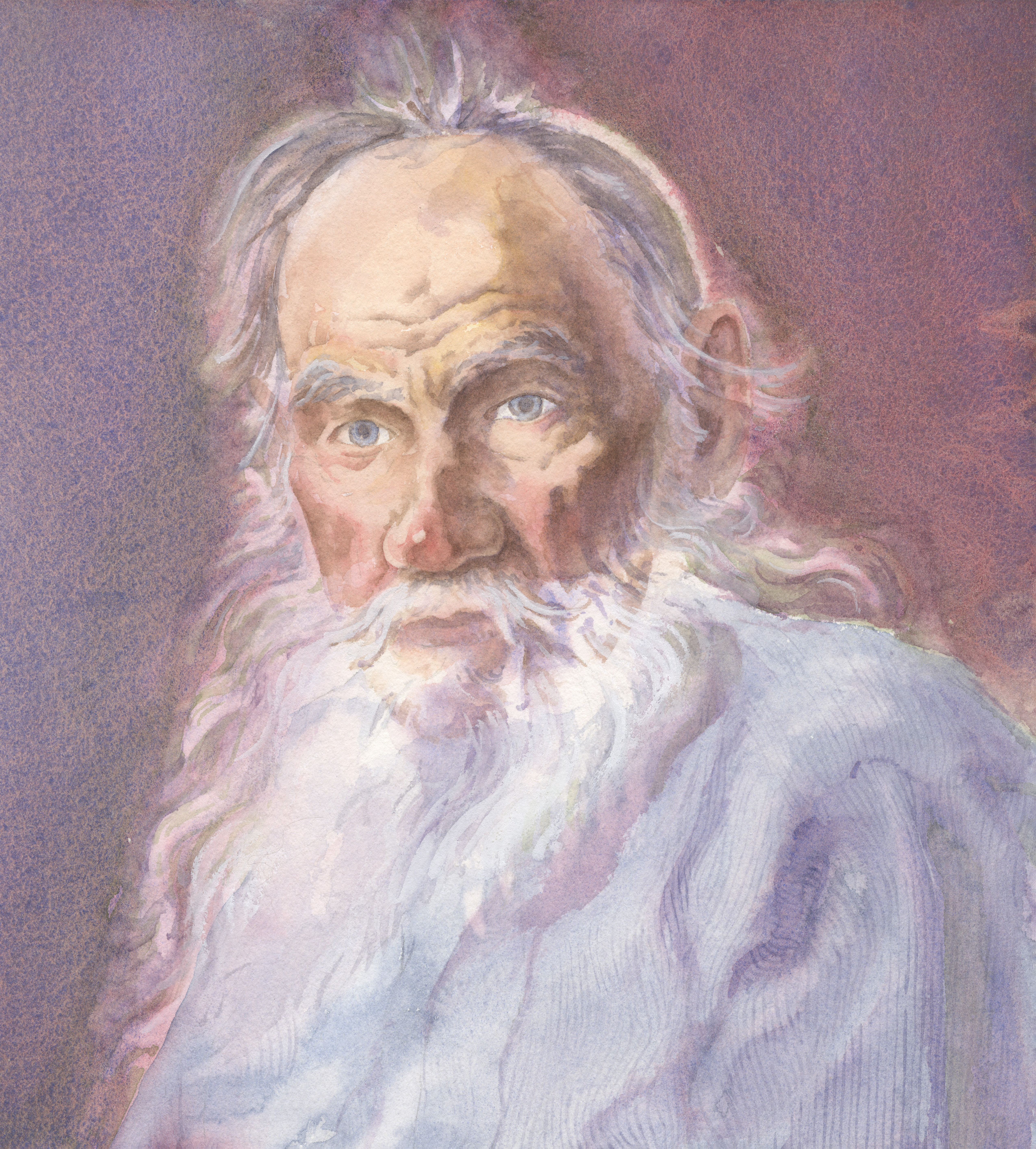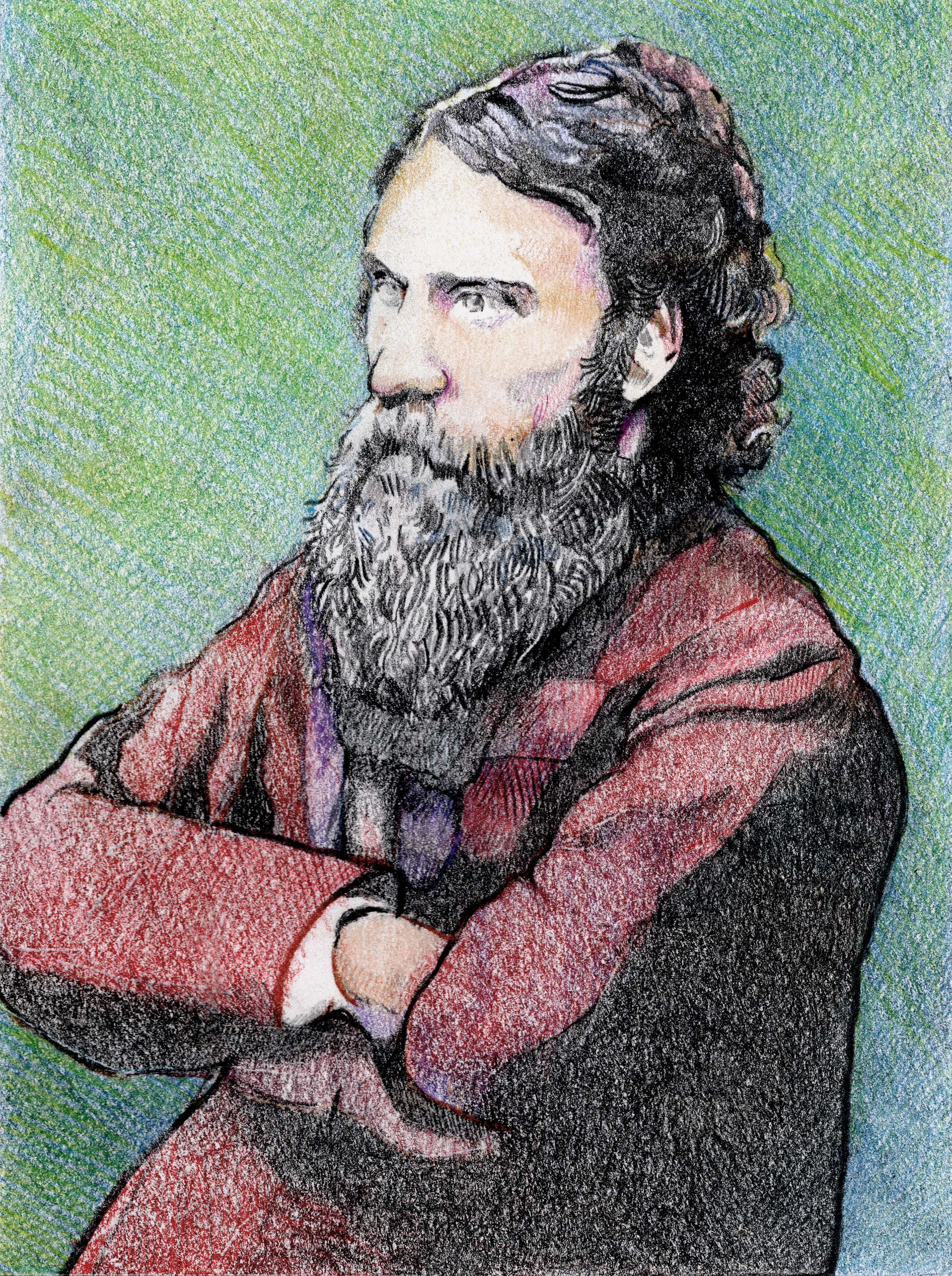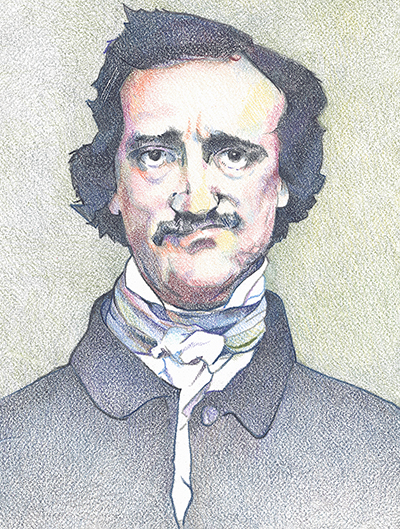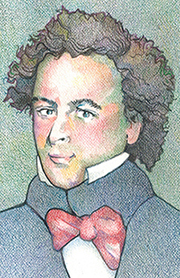Donn Byrne
Donn Byrne was born November 20, 1889 in New York City where, he claimed, his Irish parents were on a business trip at the time, and soon after returned with them to Ireland. He grew up in Camlough, County Armagh, Northern Ireland, but In 1911 he moved back to New York, determined to become a writer. After a brief, unsuccessful foray into journalism working for short stints on three New York papers, Byrne began writing short fiction, with immediate success. He eventually wrote thirteen novels and three collections of short stories before his untimely death in an auto accident at 38 years of age,
Herman Melville
Herman Melville was born in New York City on July 4, 1819 and began his literary career in 1832. He immediately succeeded, critically and financially, reporting on things he learned while working on sailing ships and visiting islands in the south seas. Yet he could not maintain his early literary success throughout his career despite developing unreal creative skills and producing some of the greatest fiction ever written. Only posthumously did his legendary novel Moby Dick, and other great works, achieve the fame they now hold and will forever retain.
Stephen Leacock
Stephen Leacock headed the political science and economics departments at McGill University in Toronto and established a notable reputation as an academic economist. He also wrote humorous essays. Many of his friends presumed he wrote them in idle moments when his wearied brain was unable to perform the serious labors of the economist. In fact, it was exactly the opposite. He found it no challenge to write instructive, academic stuff fortified by facts and figures, but to write something straight out of one’s mind that was worth reading for its own sake was an arduous contrivance that he claims he only accomplished in fortunate moments.
Yet somehow between the years 1915 and 1925, Leacock became the most popular humorist in the English speaking world. He consistently forced belly laughter by poking fun at people’s foolish acts and ideas and excelled at adroitly balancing cutting satire with over-the-top absurdity. In these ways, he was rivaled only by Mark Twain, a humorist he greatly admired. Just as worthy comedians and humorists in the USA are annually awarded the Mark Twain Prize for American Humor, worthy humor writers in Canada are annually awarded the Stephen Leacock Memorial Medal for Humour.
Leo Tolstoy
Leo Tolstoy was born into wealth at his family’s estate near Moscow on September 9, 1828 and would mainly live there until his death on February 22, 1910. His long life, complex nature, and monumental work are impossible to adequately summarize, but it’s no stretch to claim he is the most highly regarded author ever. Authentic to the core, he was adept at revealing the inner truths that motivated his characters in simple, clear, honest prose.
George MacDonald
George MacDonald was born and raised in a farming community in northeastern Scotland in 1824. He is known as the grandfather of modern fantasy fiction. Many people, including noted fantasy writers C.S. Lewis and J.R.R Tolkien, believe that his fairy-tales are the best ever written. And remarkably, this holds true regardless of his intended audience. His gift for imaginative, symbolic fiction was so great that his tales generally transcend the ages of his readers. Whether written with adults, adolescents, or children in mind, most of his fairy-tales appeal to all.
Mark Twain
Mark Twain (aka Samuel Clemens) was born in Florida, Missouri on November 30,1835 and was raised in Hannibal, Missouri, a small town on the Mississippi River. He adopted his pen-name while working as a newspaper reporter in Nevada. It wasn’t long before author Mark Twain was writing humorous stories and thought-pieces for readers across the nation while lecturer Mark Twain was cracking up audiences with finely-polished stories, delivered to perfection. It didn’t take long before his fame spread internationally or until it became permanent as gold with the publication of Adventures of Huckleberry Finn in 1884. He is widely regarded as the USA's foremeost humorist and one of its greatest authors.
Edgar Allan Poe
Edgar Allan Poe was a fascinating, superbly talented writer who lived a troubled, unfortunate life. He was born in Boston on January 19 1809. His father, an actor, abandoned his family when Poe was one year old, and his mother, an actress, died of tuberculosis when he was two. Brought up by foster parents who would not adopt him, Poe did not fit in well at home. A gloomy person, Poe also did not fit in well at school, in the military, or within society at large. But he sure could write well, and by the age of twenty-two he had decided he would make his living as a writer. Unfortunately, Poe needed to write constantly to avoid extreme poverty and never achieved fame until after his death.
Nathaniel Hawthorne
Nathaniel Hawthorne was born on July 4, 1804 in Salem, Massachusetts, a city where he spent much of his life and set many of his literary works. Hawthorne published over 100 short stories, sketches, novels, children’s stories, and non-fiction pieces during his career. He is widely recognized as one of America’s greatest authors. There have been few writers in any age who could render scenes more visually or expose the moral fiber of characters more ably than Nathaniel Hawthorne. He had a special talent for pin-pointing and describing his character’s deep-seated motivations in stylish, almost poetic prose. With a fanciful imagination and a deep moral sensibility, he looked upon all things in the spirit of love and with lively sympathies. In the field of American letters, Hawthorne is the most valuable example of the American genius. Among the men of imagination, he will always have his niche.
Jerome Tiller
I want to instill a love of reading in modern youth by introducing them to classic stories that will attract their attention, then win their hearts. And if I can do that once, modern youth might discover they can experience the love of reading great literature time and time again.
Reading great literature changes lives for the better, and too many people of all ages are missing out on that. I aim to change that situation reader by reader.

